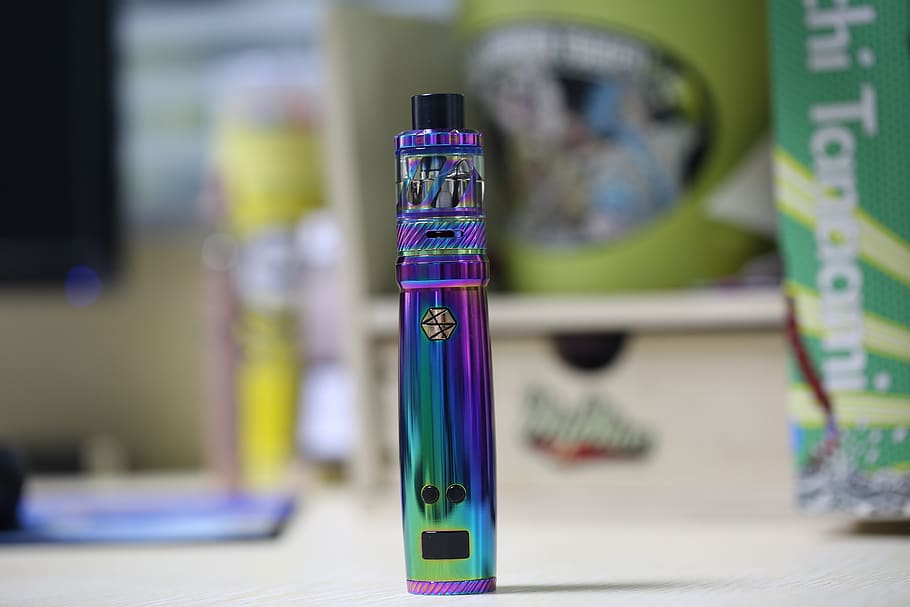World
Vaping Epidemic Hits UK Schools, Anti-freeze found in E‑Cig
By Belal Awad · June 28, 2023

In a shocking revelation, a British school teacher disclosed that vapes supplied to school children contained dangerous substances, including antifreeze, according to Sky News. The revelations were made during a Health and Social Care Select Committee session, where parties expressed concerns about the growing use of e-cigarettes among underage individuals with cases of children as young as nine being hospitalized due to severe vaping-related illnesses. The issue has raised urgent calls for stricter regulations and enforcement to protect the well-being of young people.
During the committee session, a cross-party group of MPs listened to testimony from various stakeholders, including a school principal, a doctor, and a campaign group. The principal of Saint George’s Academy in Sleaford, Lincolnshire, Lauren Caslin, revealed alarming statistics about vaping among students at her school. “It’s been estimated that a quarter of the pupils at her school vape,” she stated, expressing deep concern over the prevalence of this issue.
Caslin further revealed that older children were engaging in bulk purchases of vapes and then selling them to younger children. This practice not only facilitated the proliferation of vaping among underage individuals but also disrupted school activities. Caslin explained that alarms would sound when children vaped in school toilets, preventing students with asthma from using these facilities due to the harmful effects on their respiratory systems.
In her testimony, Caslin shared the impact of parental involvement in curbing the sale of vapes. “One parent handed in five vapes that they’d confiscated from their child’s bedroom who they believed their child might have been looking to then sell on,” she disclosed. The substances found within the confiscated vapes raised significant concerns. “The chemicals that were contained within there was very little nicotine. In one, there was only hydraulic oil and antifreeze,” Caslin revealed, emphasizing the potential dangers lurking in these seemingly innocent devices.
Deborah Arnott from Action on Smoking and Health voiced the need for strict measures to tackle the issue. “In an ideal world, what they’d like to see is a complete ban on disposable vapes,” Arnott stated. She emphasized the urgency of addressing the issue through a multi-pronged approach, adding, “We need three measures: a £5 tax on disposable vapes, a ban on branding which is directed at children, and vapes should be out of sight and out of reach of children in shops.”
John Dunn, representing the UK Vaping Industry Association, stressed the importance of better regulation and enforcement to protect children. “We are calling for robust enforcement of the current legislation,” Dunn declared. He highlighted the need for substantial fines, stating, “We have a lot of wonderful laws in this country. But unless they are enforced, unless there is a financial penalty for breaking those rules, then you can make all the laws you want, but they won’t be followed.”
The revelations from the committee session have sparked urgent debates on how to effectively address the growing vaping epidemic among schoolchildren. Stricter regulations, robust enforcement, and public awareness campaigns are now being actively pursued to safeguard the health and well-being of young individuals.
Light Wave commentary
Commentary: The rising concerns about underage e-cigarette use necessitate immediate action from policymakers, regulators, and parents. The evidence presented during the Health and Social Care Select Committee session underscores the urgent need for stricter regulations and enforcement to shield children from the potential health risks associated with vaping. While different stakeholders have proposed various solutions, a comprehensive approach is needed. Strategies such as banning disposable vapes, taxing these products, and restricting child-appealing branding could potentially limit young individuals’ access and attraction to vaping. Enforcement of these regulations, including hefty fines for those selling vapes to minors, is equally crucial. Education and public awareness campaigns should play a significant role in dispelling misconceptions about vaping’s safety and highlighting its potential health consequences. Parents, schools, and healthcare professionals must collaborate to ensure children are well-informed about vaping risks and equipped with resources to resist peer pressure. Addressing the vaping crisis among schoolchildren requires a balanced, evidence-based approach. It’s essential to avoid impulsive reactions that may inadvertently restrict adult smokers’ access to e-cigarettes as a less harmful alternative. Striking the right balance between regulation and harm reduction is paramount to protect young individuals’ health without undermining vaping’s potential benefits as a smoking cessation tool for adults. The committee session’s revelations underscore the importance of ongoing monitoring, research, and stakeholder collaboration to effectively address the evolving vaping landscape and its impact on public health, particularly among vulnerable populations like schoolchildren.